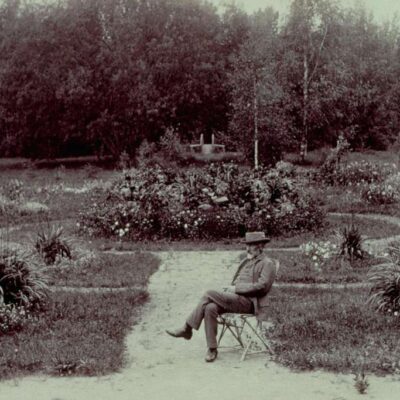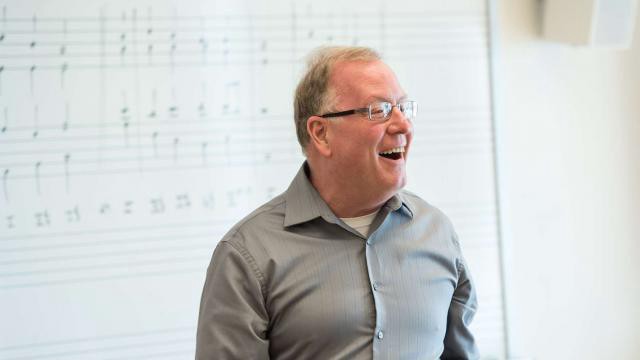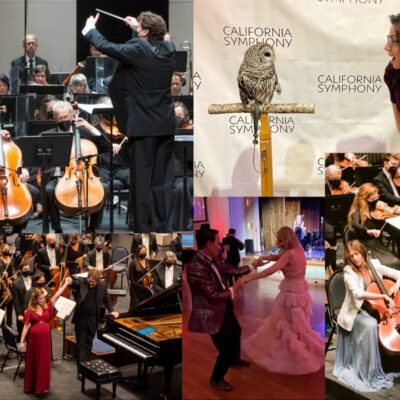Hindsight has a funny way of making past successes seem effortlessly inevitable. (Kind of like fate?) But when Tchaikovsky wrote his Fifth Symphony, he had no way of knowing whether the work would be popularly received at its premiere (it was), or that it would still be performed over a hundred years later and adored by audiences around the world (it is).
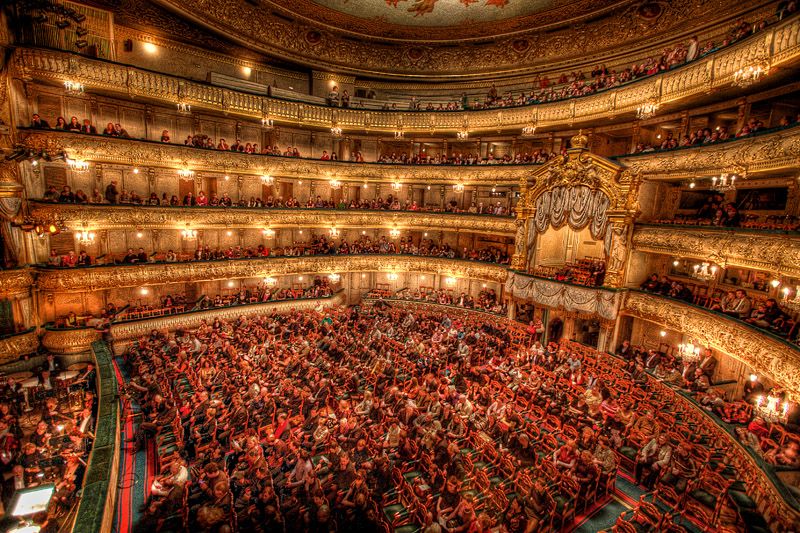
Tchaikovsky’s Symphony No. 5 premiered at the Mariinsky Theater in St. Petersburg, Russia on Nov. 17, 1888.
By California Symphony
A Fragile Peace
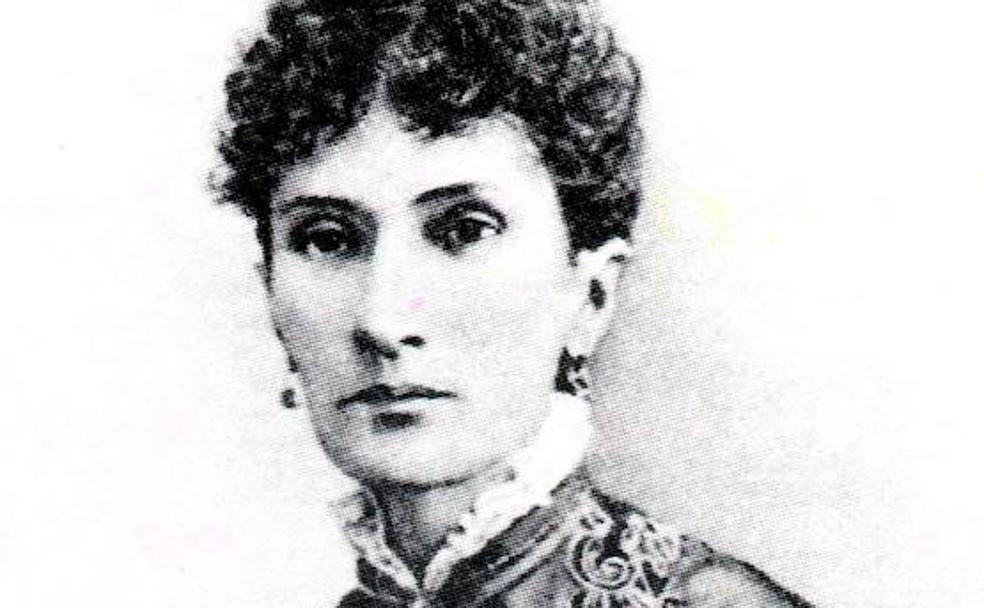
Tchaikovsky’s patroness Nadezhda von Meck.
Ever since its 1888 premiere, Tchaikovsky’s Fifth Symphony has been a hit with audiences for its soaring melodies and dramatic composition. When he wrote it, Tchaikovsky had every right to feel good about his work: His music was a hit with audiences; his social standing was assured after Tsar Alexander III’s gift of a hereditary title of nobility, and he was 11 years into a very generous and emotionally supportive arrangement with his patron Nadezhda Von Meck.
Tchaikovsky, however, remained wracked with self-doubt. Letters to his patron and friends reveal how Tchaikovsky struggled to write his Fifth Symphony. He frequently complained of writer’s block and wondered if he had simply run out of ideas. (Spoiler alert: He had not. In addition to the Fifth Symphony, over the next few years, he would go on to create some of his greatest and most beloved masterpieces, including Sleeping Beauty and The Nutcracker.)
In the end, the Fifth Symphony was well received by Tchaikovsky’s friends. He told one, “The symphony has received unanimous approval from all my friends: some even say that it’s my best work.”
Still, this confidence did not last long, however, and after subsequent performances in St Petersburg and Prague, he soon began to doubt himself again.
A Fixation with Fate
For Tchaikovsky, fate was a powerful, undeniable force which the composer explored in operas as well as in this piece. He was deeply interested in what he perceived to be crucial moments—declarations of love, unrequited feelings, break ups—which determine someone’s path and which subsequently impact the lives of others.
Shortly before composing the Fifth Symphony, he wrote in his notebook:
“Introduction. Complete resignation before Fate, or, which is the same thing, before the inscrutable predestination of Providence. Murmurs of doubt, complaints, reproaches against XXX. (2) Shall I throw myself in the embraces of faith??? A wonderful program, if only it can be carried out.”
Musicologists have long debated what the “XXX” stands for—his sexuality, gambling habit, or something else—but nobody knows for sure.
A Notable Performance
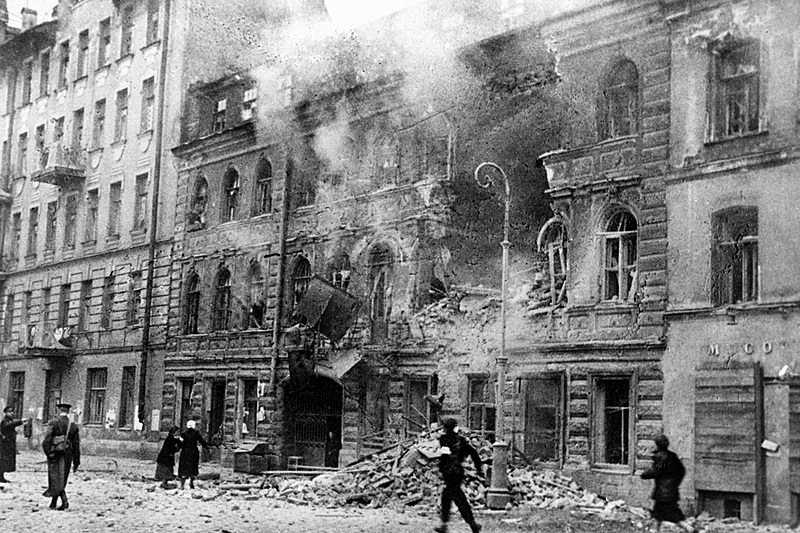
A street after a German artillery raid during the Siege of Leningrad.
The Fifth Symphony and its theme of “ultimate victory through strife” was very popular during the Second World War years. Perhaps the most dramatic performance of the piece came at the beginning of the devastating Siege of Leningrad (formerly the city called St Petersburg), as the Leningrad Radio Symphony Orchestra was ordered to play to keep up the spirits of the city’s population. On October 20th, 1941, their concert featuring Tchaikovsky’s Symphony No. 5 was broadcast live to London, and listeners could hear the sound of bombs falling nearby. The stoic musicians played on regardless, without skipping a beat.
What Does Fate Sound Like?
The piece features a recurring melody that is present through all four movements, starting darkly in a minor key with the tragic theme played by clarinet and ending triumphantly in major key. There is also a beautiful horn solo in the second movement which is among the most famous and most difficult horn solos in all classical music.
You can listen to the second movement with its beautiful horn solo here:
(Some have suggested that John Denver’s Annie’s Song was inspired by the horn melody…listen out for it at :54 and 1:19 seconds and see what you think.)
As the music transforms from darkness to light, and from fear to joy, do we believe that the composer made his peace with his fate? You decide.
Originally published February 20, 2020. Updated August 3, 2021.
The California Symphony’s EPIC FINALE featuring cellist Nathan Chan and California Symphony Young Composer in Residence, Viet Cuong takes place Saturday, May 14 at 7:30 PM and Sunday, May 15 at 4 PM at the Lesher Center for the Arts. Tickets are $44 to $74. Buy tickets online or call or visit the Lesher Center Ticket Office at 925.943.7469, Wed – Sun, 12:00 noon to 6:00 pm.

